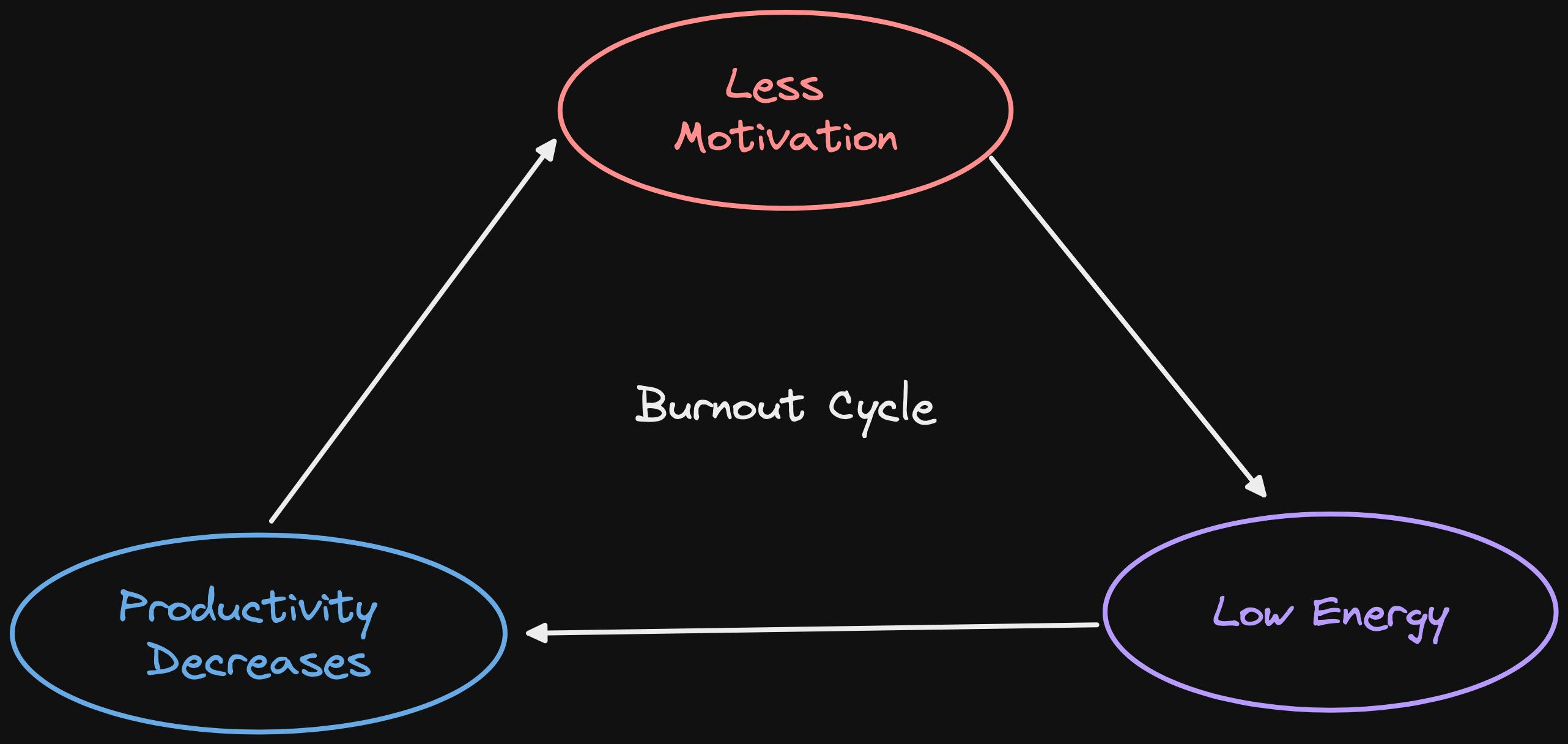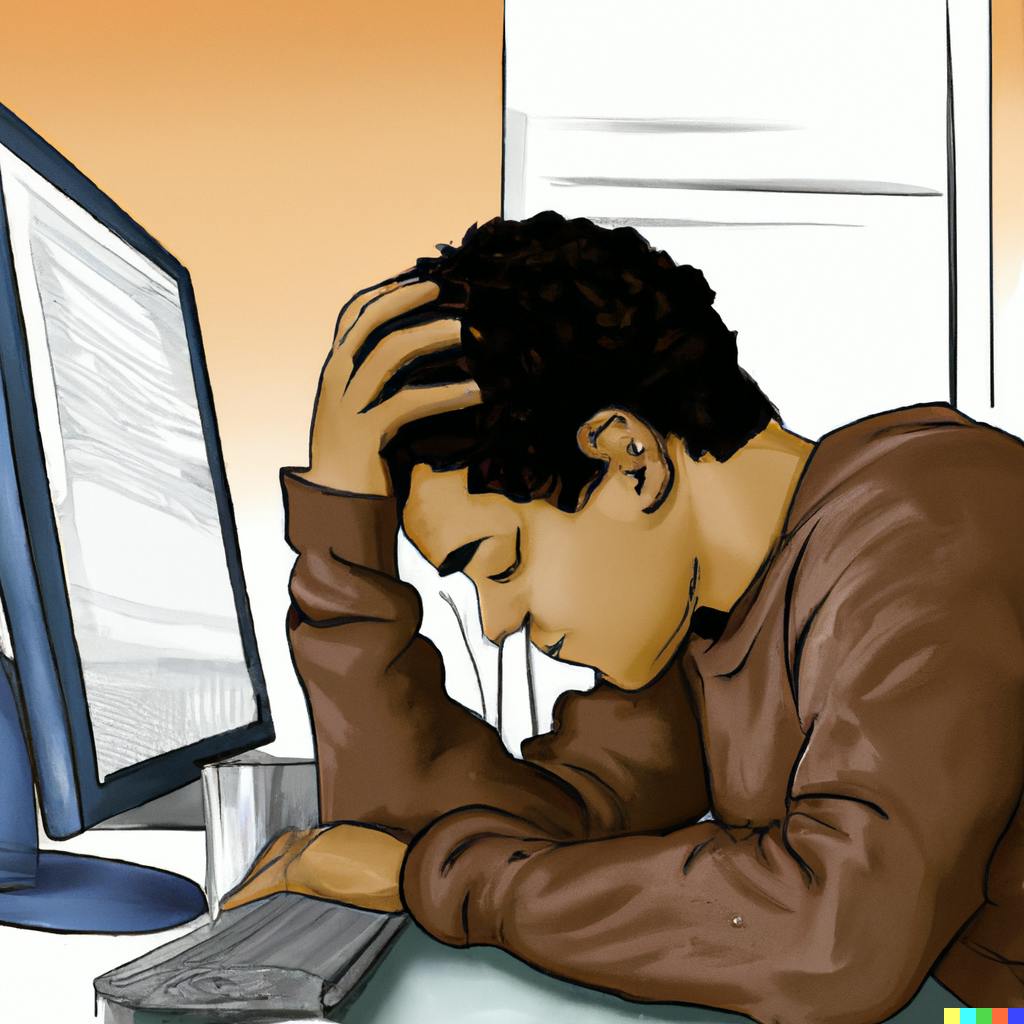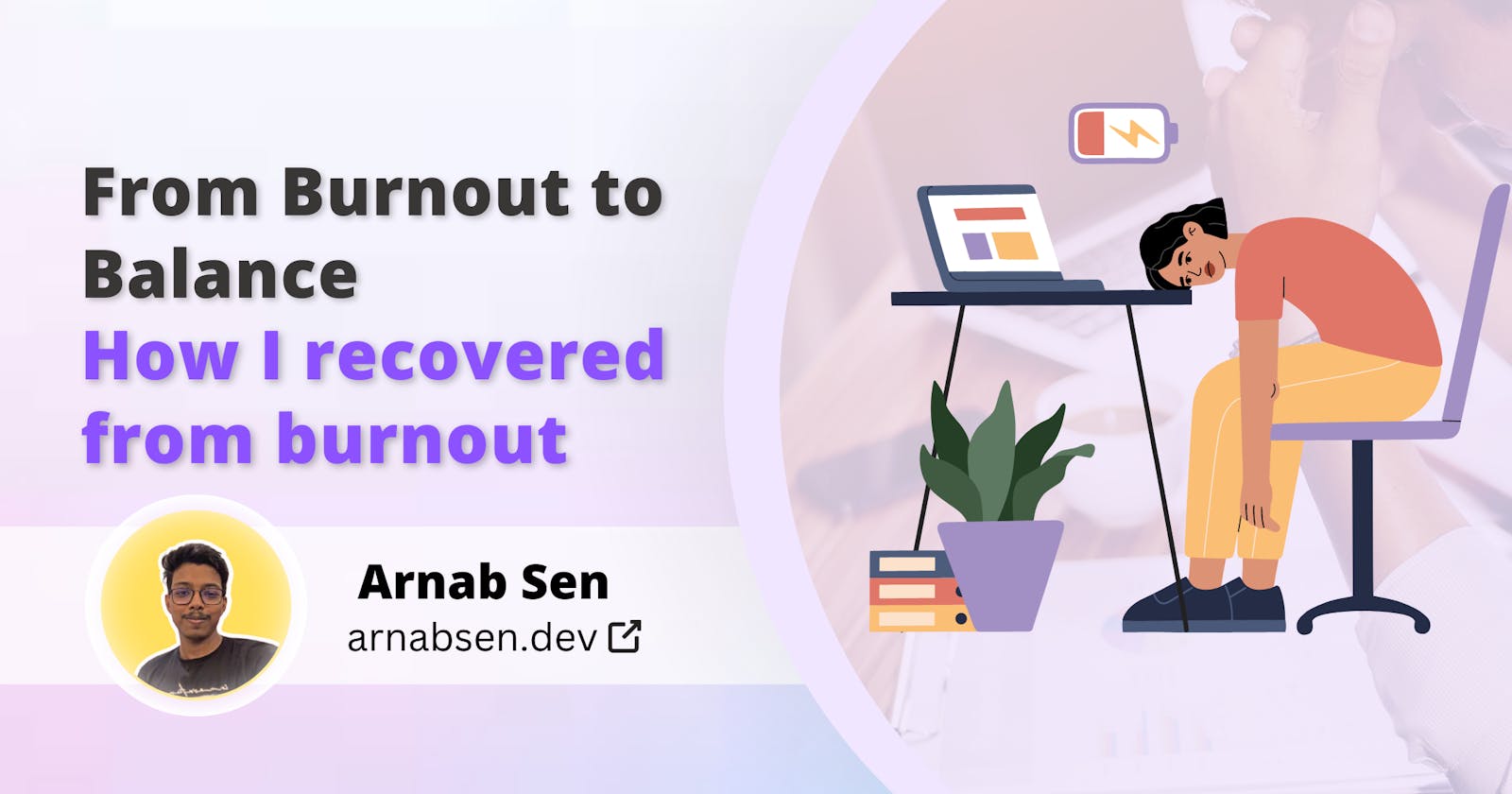From Burnout to Balance: How I recovered from burnout
Effective Strategies for Software Developers to Prevent and Recover from Burnout.
Have you experienced a sudden loss of motivation, a lack of energy to complete tasks, a decrease in inventiveness, and a drop in productivity?
It happened to me, and after speaking with one of my seniors, I discovered that this condition is known as burnout. Then I began investigating this particular topic, and it turns out that it's a rather common occurrence that can impact anyone, particularly those in high-stress professions like software development. However many individuals are unaware of it and fail to take the required steps to recover from it. The sooner you recuperate, the more energized you will feel about your task, which will eventually result in better results and increased productivity.
In this article, I'll try to go over some of the indicators that you might be burnt out, and then I'll provide some suggestions that helped me get back on track. It should be noted that burnout can progress to depression, in which case you should consult a medical expert.
A little note: Because I am a Software Developer, my thoughts on dealing with Burnout will be slightly skewed and will be more relevant towards this profession.
My burnout experience
I was attempting to achieve several things at the same time in the second half of 2021.
I was a mentee at Summer of Bitcoin and I was working on adding USDT (User Statically-Defined Tracing) tracepoints to the UTXO (Unsigned Transaction Output) set of Bitcoin. Furthermore, I had no prior knowledge of Bitcoin, tracepoints, or working with a huge C++ codebase.
My internship placements were ongoing, and I was being turned down both on and off campus. I was devastated when I was denied Microsoft's Engage program and then again from their OA round.
But at the time, I was all about having a decent internship, so I went all in. Ended up cracking Wells Fargo SDE Internship and Google SWE Internship. Also after completing my Summer of Bitcoin project got an internship opportunity at Chaincode Labs.
But then I changed from being a highly driven, hyperactive person to someone who had very little ambition to accomplish anything and felt sluggish all day. My productivity dropped, which made me feel even worse, and I became trapped in a vicious loop.

Signs of Burnout: How to Recognize Them Early
These will be some of the early signs that you will notice:
Decreased productivity: You will find yourself struggling to complete tasks or meet deadlines.
Lack of motivation: There is a feeling of disengagement or lack of interest in your work. You might not even find your work pleasurable anymore.
Chronic fatigue: You're constantly tired, despite getting enough sleep.
Irritability: Burnout can lead to feelings of frustration, anger, and irritability.
Decreased quality of work: Burnout can cause you to make more mistakes or produce lower-quality work than you normally would.

Now, let's understand the causes of Burnout and how to avoid them.
Avoiding Burnout
Maintaining balance
In life, balance is crucial. It's incredibly easy for software engineers to work longer hours because all we need is a laptop and an internet connection. As a result, we occasionally forget our limits and push ourselves. It may produce short results, but it is hazardous in the long run. If we spend all our time and energy at work and neglect our personal life and self-care, it can lead to physical, mental, and emotional exhaustion.
As a result, we must strike a good and sustainable balance between many aspects of our lives, such as jobs, hobbies, family, and friends. This varies from person to person, therefore you must reflect and establish ground rules for yourself.
Post 6 pm, no work-related calls/talks.
Go outside to play some sports with friends.
Taking a vacation once in a while and travelling.
Having dinners with family or friends.

Taking Breaks
Taking breaks is incredibly important in avoiding burnout. Breaks allow us to rest, recharge, and reset, which can help us manage stress and prevent exhaustion. When we continuously work without breaks, we can become overwhelmed, stressed, and exhausted, leading to burnout.
Breaks can take many forms, from short breaks throughout the day to longer vacations. Short breaks, such as taking a few minutes to stretch, walk around, or chat with a colleague, can help us refocus and re-energize during the workday. Longer breaks, such as weekends, holidays, or vacations, allow us to disconnect from work and engage in activities that bring us joy and relaxation.
Next time when you are stuck fixing a bug, go ahead take a walk and come back. 8 out of 10 times you will be able to fix it.

Having a clear understanding of your work
Employees can experience stress, dissatisfaction, and burnout when they are confused about their tasks and responsibilities or are given ambiguous expectations.
Employees who lack clear direction may struggle to prioritize their tasks or become overwhelmed by competing requests. This can lead to feelings of powerlessness and a lack of control over their work, which can lead to burnout. Workers may also feel that they are not fulfilling expectations or that their efforts are not being recognized, leading to feelings of discontent and disengagement.
Clear communication is the solution. If you have any questions about the tasks, you should speak with your manager, senior, or leader. If you believe you will have problems completing the work, mention this as well. This will be beneficial in two ways. One, your manager will have a clear knowledge of your comprehension and will be able to provide extra resources to assist you. Two, you will feel relieved, which will lower your stress levels.
Self-Care
Finally, you must take care of yourself. By practicing self-care, individuals can reduce stress levels and promote overall well-being, which can help prevent burnout. Some self-care practices that can help prevent burnout include:
Prioritizing sleep: Getting enough sleep is crucial for overall health and well-being and can help individuals manage stress levels. Consistently getting 7-8 hours of sleep per night can help prevent burnout.
Engaging in physical activity: Regular exercise can help reduce stress levels, promote relaxation, and improve overall health. Engaging in activities such as walking, jogging, or yoga can help prevent burnout.
Practicing mindfulness: Mindfulness practices, such as meditation or deep breathing, can help individuals manage stress and improve emotional well-being. By staying present at the moment and reducing distractions, individuals can prevent burnout.
Eating a healthy diet: Eating a balanced diet that includes whole foods, fruits, and vegetables can help individuals maintain physical and mental health. A healthy diet can help individuals manage stress levels and prevent burnout.
Engaging in leisure activities: Engaging in activities that bring joy and relaxation, such as reading, painting, or spending time with friends, can help individuals manage stress and prevent burnout.

Seeking professional help
If things are getting out of hand, it's always a good idea to seek expert assistance. Counseling or therapy can offer individuals assistance and guidance in dealing with stress and avoiding burnout. The faster you recuperate, the better you will be able to focus on your task, leading to an increase in total productivity.
Final Thoughts
I have been following these few advices that I received from my seniors and leads at Google, and to be honest the outcomes have been fantastic.
I completed my Google internship securing a PPO.
I worked as a Technical Content Writer for Codedamn and authored few high-quality posts. You can find them right here.
I won Showwcase's Develevate event.
I joined a Singapore-based web3 startup called Cypherock as an SDE Intern.
I joined Pupilfirst as a Teaching Assistant.
At the same time, I've been taking care of myself by going to the gym on a regular basis and eating healthily.
Yet I didn't experience any burnout along the process. I hope these few tips will assist you in increasing your work productivity and avoiding burnout.
TLDR;
Maintaining balance, taking breaks, having a clear understanding of work responsibilities, practicing self-care, and seeking professional help if needed are all effective strategies to prevent and recover from burnout. Prioritizing our well-being and seeking help when necessary is essential to achieving long-term success and productivity. Remember, taking care of ourselves is not a luxury but a necessity, and it is essential to make self-care a priority in our daily lives.
All the images in this article were generated by Dall-E.

